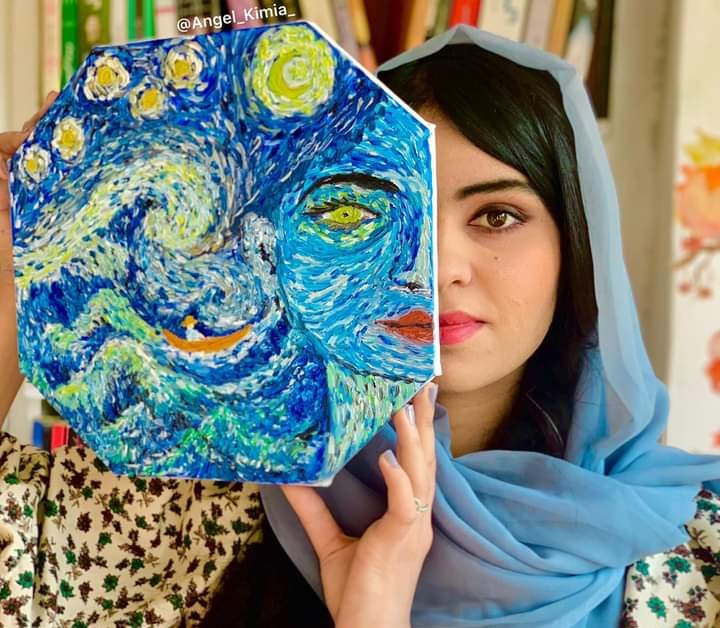
Translator: Masouda Aowrangzeb
In one of the portraits, there is a sentence on the phone of a girl beside her blood which has a victim of the tyrant hands of the war; a sentence that forms a big tragedy in its time. An era accompanied with stresses and the most fearful moments for tomorrow and history.
A man in one of the portraits looks at the camera while his mouth and eyes are tied up; it is a silent story of difficulties of the life of war migrants in other side of sour waters. And in another portrait, there is a girl wearing a red upper, grey skirt, and holding a def, among the religious and cultural dogma.
They have been created by the painter girl; Angel Kimia who has portrayed the events surrounding her skillfully to show the confrontation and war of the arts with the fundamentalism.
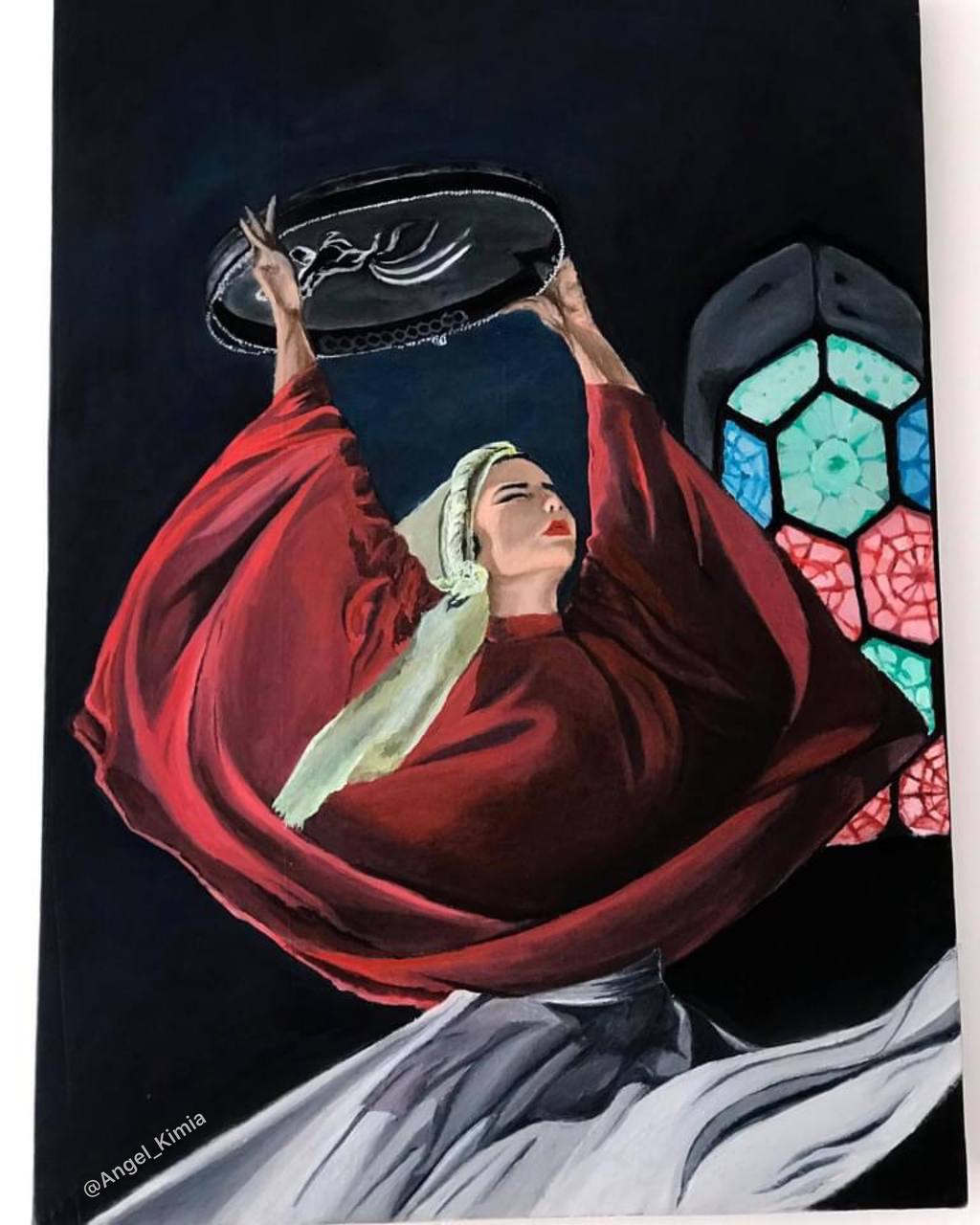 She was born in Herat and has grown up in Kabul. She has felt gender discrimination deeply as her parents did not have a son. Thus she has challenged the social stigma of with paints and pen. “When I was a child, I usually hear the people saying to my parents, you don’t have a son. We wish one your daughters, was a son! And so far”
She was born in Herat and has grown up in Kabul. She has felt gender discrimination deeply as her parents did not have a son. Thus she has challenged the social stigma of with paints and pen. “When I was a child, I usually hear the people saying to my parents, you don’t have a son. We wish one your daughters, was a son! And so far”
She has successfully identified her talent longs ago and has tried to learn arts a maturely. When she was a student of journalism, she sometimes when to arts education centers to learn how to portrait her ideas. Now while she is a student, lives in an uncertain condition with no clear tomorrow, and she does not know when and how she could continue her studies.
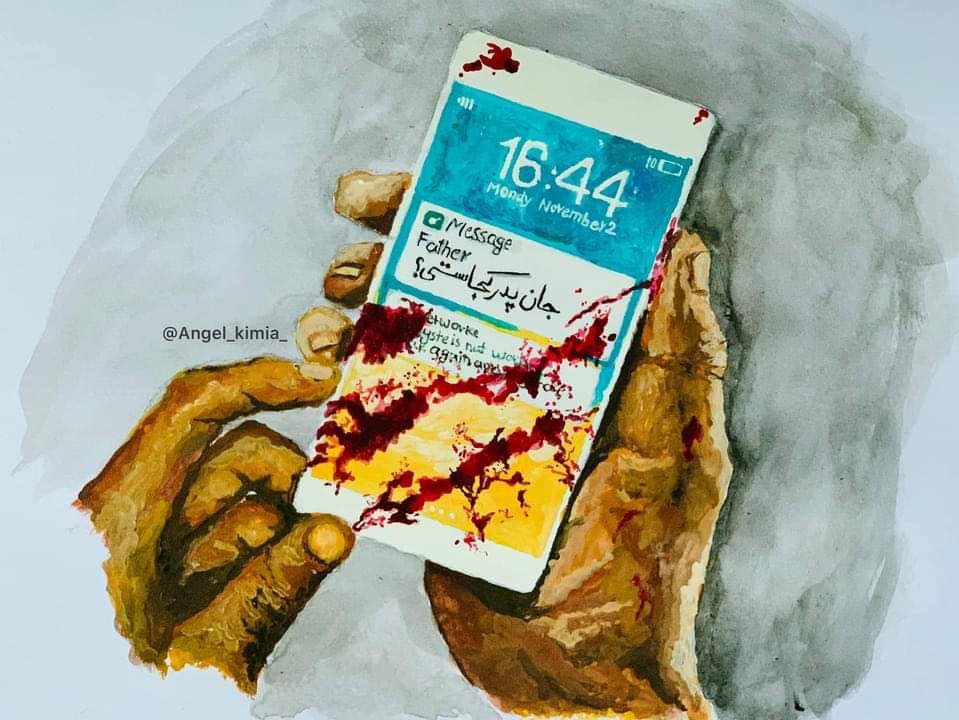
She remembers the terrorist attack on the biggest and the most popular university of Afghanistan on Aqrab 12, 1399. She remembers well how 20 students were brutally killed and tens of girl and boy students were injured and carry the wounds and sad and frightening memories of that day and the days alike.
Kabul collapse coincided with her fourth year of education while her hands were dancing with brush, paint and painting canvas. It was the biggest event of her life, an event that changed her art and education life, and after that her perspective changed as any artist. “We as artist cannot draw our subjects as we want and as a result we feel limited ourselves.”
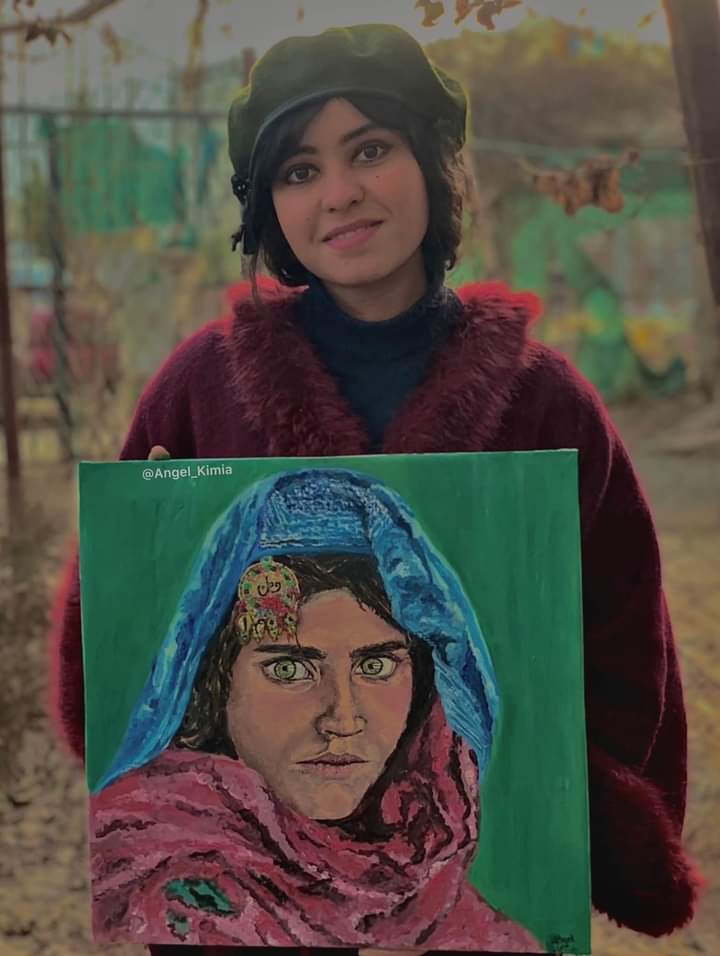 In addition to that, people are not much interested to visit their exhibitions, as they are trying hopelessly to afford their basic needs.
In addition to that, people are not much interested to visit their exhibitions, as they are trying hopelessly to afford their basic needs.
According to Angela Kimia, she did not know what to do due to fear after Kabul collapsed. However, she gradually decided to continue her profession as she did before and even stronger than before. “I did not work hard as much hard as much I do now.” She says.
Contrary to the limitations imposed on her work and narrowness in terms of arts, she does not give up and prefers to stand on her commitments. “Contrary to the limitations imposed and narrowness, I believe we must go on with persistence and to not give up. We shall criticize inequalities and tyrannies through any possible means”, Shae says.
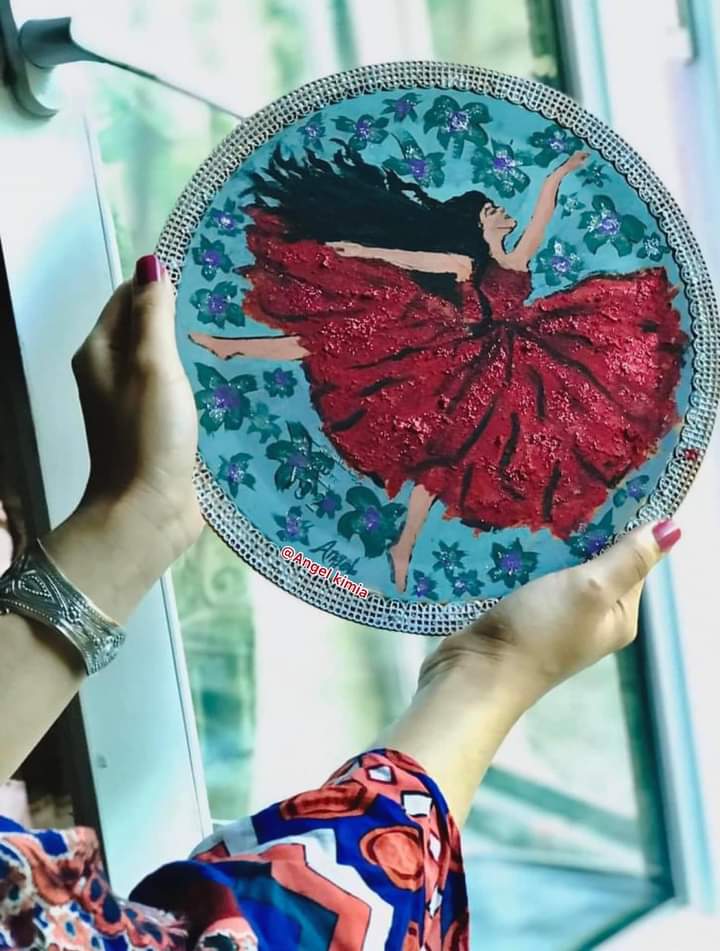 Many artists as Angela Kimia, have closed their offices, have burnt their music instruments or have fled the country. The situation has worsened recently to due house search and some artists have been insulted. The paintings of some of the painters have been destroyed, the music instruments of singers gave been broken or have been hung on the necks and they have been turned around on the streets.
Many artists as Angela Kimia, have closed their offices, have burnt their music instruments or have fled the country. The situation has worsened recently to due house search and some artists have been insulted. The paintings of some of the painters have been destroyed, the music instruments of singers gave been broken or have been hung on the necks and they have been turned around on the streets.
Although Taliban has said artists and cultural activists are free to work in the framework of Islamic principles, and they do not interfere in their activities but their harsh approach contradicts with their claims.
As such, Afghan women are at the verge of 8 March, the Women World Solidarity Day. Protests and demands of women were at a higher level in the past years, but they fight for their basic needs at climax of threats nowadays.

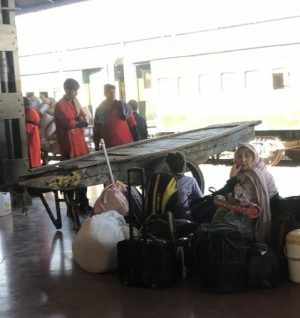
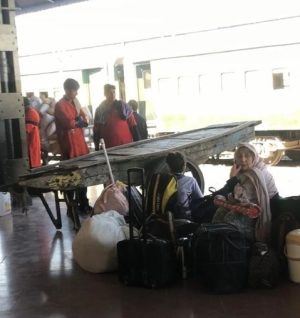
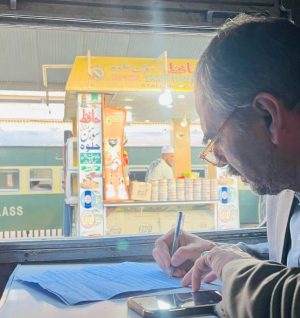
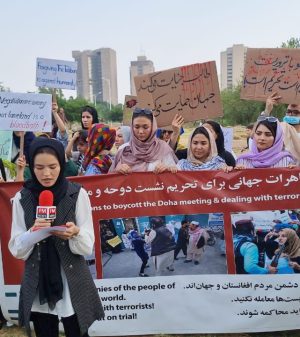
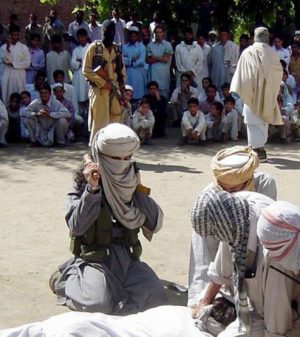
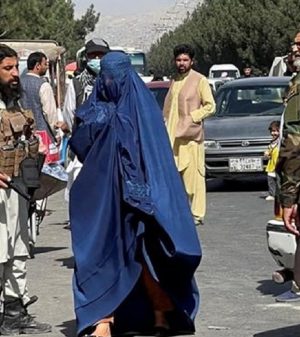
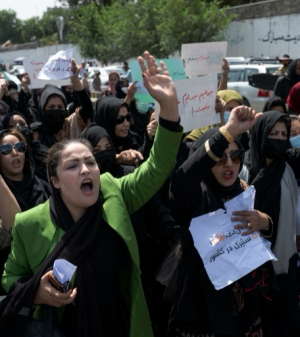
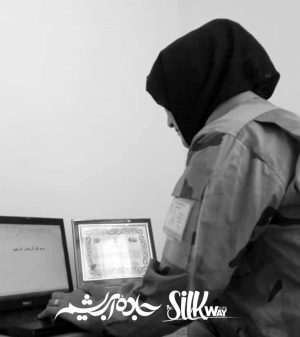
Add Comment